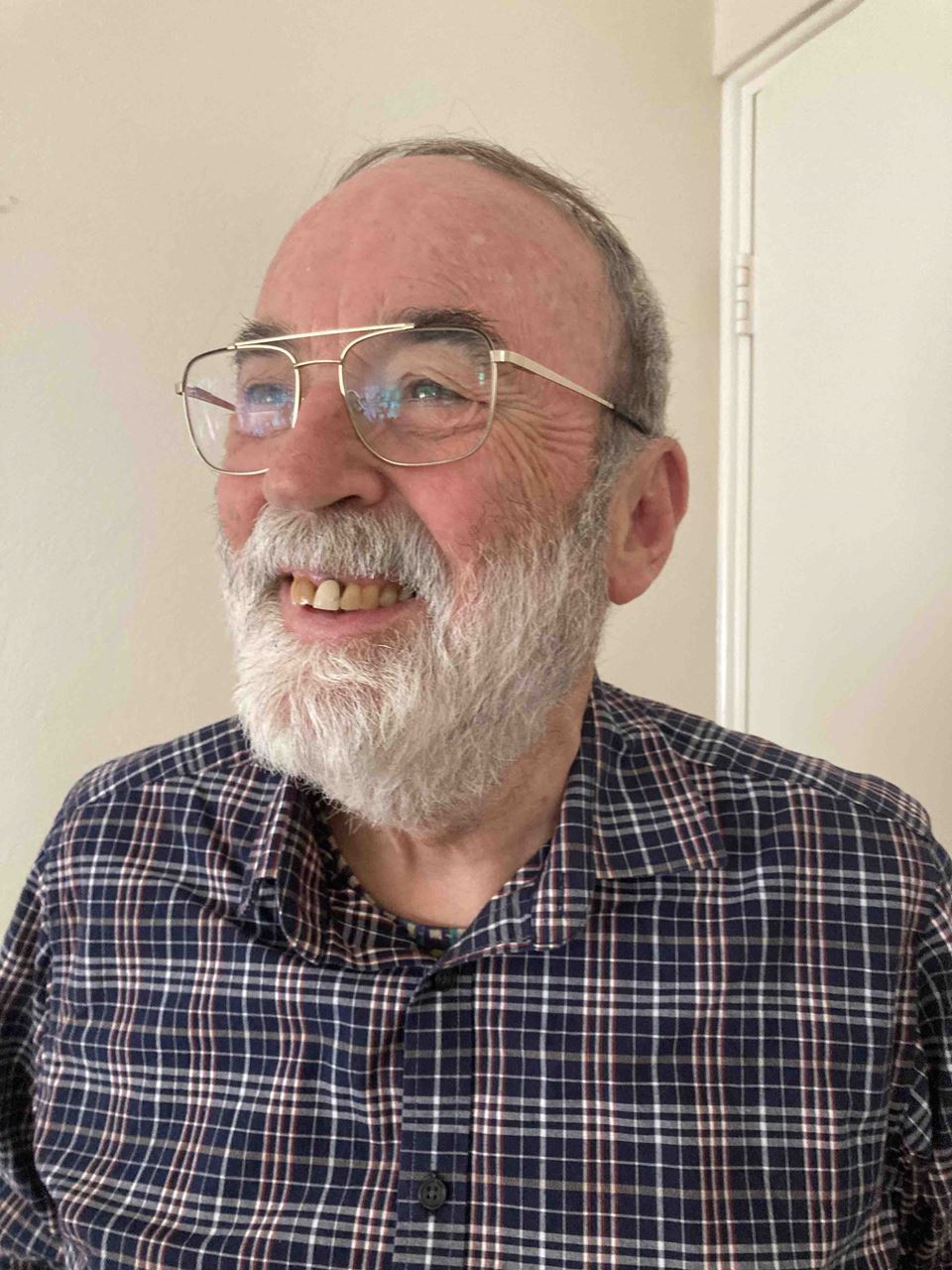From microwaves to phones and cleaner coal
Paul Roubel Cornwell Goard - Lifetime Fellow of the AIP
Where and when were you born? Bankstown, NSW – 1930. What inspired you to jump into Physics? High school physics was interesting and challenging, with many new possible developments in the future, following World War II. I acquired a Bachelor of Science degree at University of Sydney, in physics and mathematics, with two years of geology and one of chemistry. At this time, University of Sydney’s facilities were stretched, accommodating many returned service people along with the school leavers. What was your first physics job? My first employment was with the Radio Transmission Division of Standard Telephones and Cables Pty Ltd from 1951 to 1953, testing microwave components and calibrating wave and power meters for a ‘Pulse-Time-Modulated’ phone system – all valves. It was enjoyable, but my work was moved from Alexandria to Liverpool – a long way to travel. My second position was to join CSIRO’s Coal Research Section at North Ryde in October 1953. Projects at various times included: optical, thermal and electrical properties of coals, chars and boiler deposits; instrument development; and work to improve the operation of electrostatic precipitators, as used to clean the flue gases of coal-fired power stations boilers. I retired in 1990. | 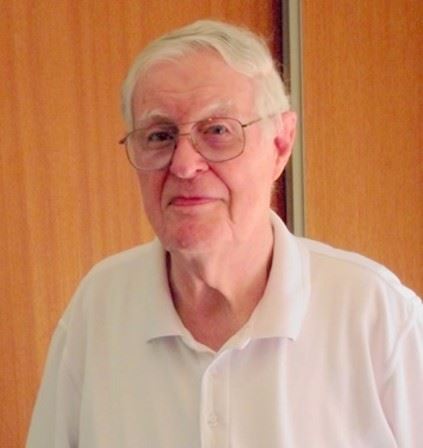 What memorable moments stand out in your career? Having papers published has been a good reward, as well as presentations at conferences, mainly about ‘Electrostatic Precipitators’ or ‘Clean Air’. With papers being listed on the web, it has been satisfying to see several being cited. What is one piece of advice you would give a new physics graduate? Although many of the ‘gaps’ in basic physics have been filled over the years, the fundamentals of physics can apply to solving many issues which occur in today’s industries or elsewhere. |
What is your role? I am in the gem industry or more specifically, the diamond industry. A few years ago, I started a couple of businesses: one making instruments for gemmologists and another running a diamond laboratory specialising in certifying Argyle origin of pink and violet diamonds. Physics has played a role in both those enterprises as they involve the light spectrum from ultraviolet to infrared. The enabler for the businesses was a combination of my physics background and working for Rio Tinto Diamonds on and off for some 25 years. This experience exposed me to the diamond industry across the pipeline, from exploration to the jewellery market. A physics education plays a role in each stage of this pipeline and has allowed me to apply a different mindset to the operation and challenges in each of the stages. What type of physics did you train in? During my Bachelor of Science at the University of Queensland, I was particularly drawn to optics, experiments and data analysis. Sadly, I couldn’t quite get to grips with solid state physics, as it would be most useful in my area of interest in understanding the cause of colour in diamonds. I have initiated three PhD theses by others in studying the cause of colour in Argyle pinks diamonds, for which energy levels and Fermi levels play a key role; but frustratingly I can’t contribute to the findings. What were your first jobs? Immediately after graduating, I worked in the quality control department of a Melbourne factory that produced metal components for washing machines and other appliances. Be able to read a micrometer was the job criteria – I could do that, and needed a job! After a few months, that company engaged in a joint venture with CSIRO on a new hard ceramic – zirconia, and I became the technical liaison fellow participating in the R&D at CSIRO. Experimental design and data analysis were key areas where I could contribute, mostly amongst chemists and material scientists. Optics and lasers always appealed to me and I succeeded in being employed in an R&D job in Adelaide, working on lasers and optical projects. That position exposed me to producing engineering drawings for fabricating components – a valuable skill for later in life. When that project came to an end, I entered the patent attorney industry, learning how to search and write patents while also studying the law. I think physicists are very specific in both their data and words, so are able to choose words and expressions that are precise and concise. This training was invaluable in later life where innovation played an important part. What was a turning point in your career? My main change in jobs happened when the Argyle diamond mine came on stream in my late 20s. I spotted an advertisement looking for a physicist experienced in lasers and hard materials. That was me! To Perth I went and was arrogant enough to know that I was the only qualified person in the country for the job, so was able to negotiate a starting salary 50% above their initial offer. Knowledge of lasers and hard materials wasn’t really that important for the position, but I’m glad HR thought it was! I arrived to find a lab already fitted out with lasers, sensors, optical benches, lenses, filters and other optical accessories. Heaven for me, but what to do with it all? My metallurgist manager had chosen them with a generous budget, thinking they might be useful. I started tackling the issue of how to sort rough diamonds by machine. In the building, many manual sorters would pour over rough diamonds, allocating them to numerous categories for the purpose of assigning a value to each monthly shipment. These allocations were based on size/weight, colour, clarity and shape. Only weight could be measured, the others were subjective. I tried to introduce objective measures of the other parameters that culminated in designing a machine that automatically sorted rough diamonds into one of 35 categories at a rate of 5 stones per second. |
Other projects included developing an instrument to colour grade pink polished diamonds and another to measure the ore concentration of rocks on a conveyor belt. Each of these demanded an understanding of optics and experimental design in order to optimise parameters. Many aspects of diamond involve light and hence optics. They are recovered by their fluorescence from x-rays. Other minerals fluoresce also. I designed filters to optimise the recovery, reducing the non-diamond component from 20% to less than 5%. For the exploration sector, geologists rule the field, but I tried to bring to the discipline data analysis, understanding errors and modelling. This approach offered great savings in the work needed to establish if a diamond deposit is economically viable. Even the cutting and polishing of diamonds offered opportunities for a physicist. On a commercial level, I developed a detailed model for understanding the physical and commercial transformation of a rough to polished diamond. Getting engaged to be married gave me a reason and an opportunity to polish a diamond. During the activity, I noticed that the polishing rate didn’t seem proportional to the pressure on a facet (as would be expected) and the diamond glowed. That initiated research projects on the dependency of wear rate on load and on the relationship between triboluminescence intensity and wear rate. Both were presented at a technical diamond conference. What are your most recent and next jobs? After being retrenched from Rio Tinto (the result of a ‘restructure’), I started my own business making a simple UV instrument for looking at the fluorescence of diamonds. Luminescence is a key indicator for identifying synthetic diamonds. Later, I developed a spectrometer system for gems that can both record visible absorption spectra and luminescence spectra from excitation by a ultraviolet laser. More recently, I opened a diamond laboratory that mainly certifies if a pink or violet diamond is from Argyle. This confirmation is achieved based on infrared, visible and luminescence spectroscopy. All the instruments except the infrared spectrometer were made by me. I am now working on an instrument to detect synthetic diamonds that will be based on deep ultraviolet light. Some exist on the market but are very expensive. I am hoping mine will be affordable. How do you think physics can benefit Australian industries? I think many more industries could use a physicist to bring a more objective view to operations, and be able to design tests or surveys to investigate and optimise systems and make decisions objectively. Physicists understand numbers, statistics, modelling and logic. I think many industries would benefit from employing a physicist, but employers tend to regard the field as one relating to Big Bangs, nuclear matters and quantum physics. To me, the biggest opportunity for managers of industry is to understand uncertainties in measurements and, when warranted, to run Monte Carlo simulations. In the mining sector, decisions are invariably made with no consideration for errors and it is not unusual to see forecasts with 6-figure accuracies! |
From particle physics to understanding cancer genetics
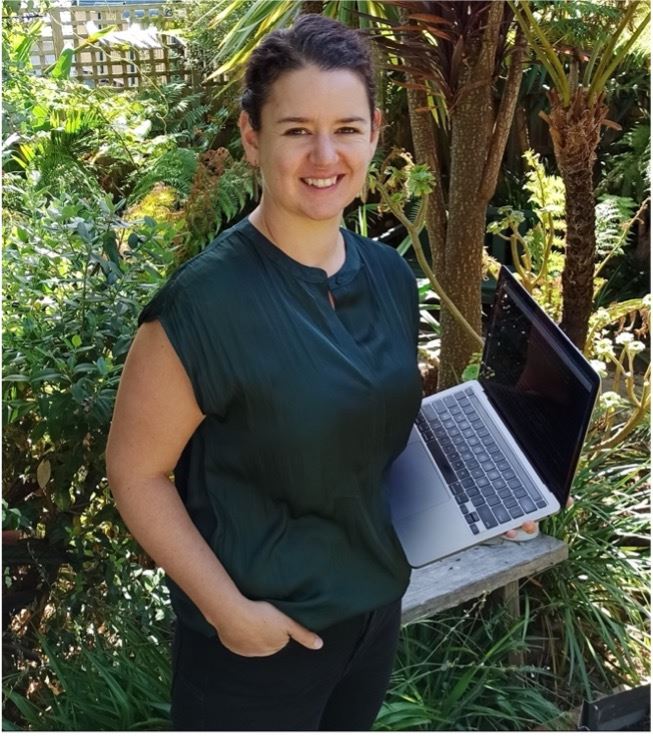
Dr Nadia Davidson, Lab Head at Walter and Eliza Hall Institute of Medical Research
Where do you work?
I lead a bioinformatics research group at the Walter and Eliza Hall Institute of Medical Research in Parkville, Melbourne. My team of students and postdocs analyse genomic sequencing data to understand the underlying factors that distinguish cells during disease progression and development, particularly in cancer.
We build computational methods which are made available to the broader medical research community as open-source software to facilitate the analyses of sequencing data.
One particular focus of my research is identifying cancer-causing changes in RNA – the molecular readout of genes from DNA. For example, in cancer, large segments of DNA can be relocated, giving rise to hybrid genes that merge the sequences of two, ordinarily distinct, genes. I have built methods to detect these novel events which are being used to inform the best treatment for cancer patients and to deepen our understanding of cancer biology.
What type of physics did you train in?
Following a double degree in science and software engineering, I undertook a PhD in high-energy experimental particle physics from the University of Melbourne. A significant portion of my doctoral research was conducted at CERN in Geneva on the ATLAS experimental at the Large Hadron Collider (LHC).
Participating in this massive collaborative effort, which is rare in science, was fascinating. I also had a brief role developing software for coherent x-ray diffraction imaging, after completing my PhD in 2011.
How do you use your physics training in your current role?
My journey into bioinformatics was influenced by my physics network. I learnt about a postdoctoral opportunity within the research group of Alicia Oshlack, who now leads the computational biology program at the Peter MacCallum Cancer Centre. She had successfully transitioned from astrophysics into bioinformatics herself years earlier and was just starting her independent research group at the Murdoch Children’s Research Institute at the time.
Being mentored by someone with a similar academic background has been invaluable throughout my journey in bioinformatics.
I was drawn to bioinformatics for many of the same reasons I pursued physics—it combines science, mathematics, statistics and computer science. The biological sciences, especially sequencing technologies, are producing vast amounts of data that we're still trying to fully understand.
My research in both fields was fundamentally about extracting novel insights about nature from masses of information through data science. Though the programming languages and data types differ, similar analytical and critical thinking skills are required.
Was there a particular moment in time, when you realised your physics training has been valuable?
My physics background has been beneficial in many ways, from shaping my approach to research, to expanding my personal networks and exposing me to diverse leadership and collaborative styles.
Physics is very reductionist and I believe a lot can be gained by applying a reductionist approach in biology. It’s not unusual for me to discover that a fantastic speaker at a conference also studied physics.
There are a surprising number of 'hidden' physicists in the field, many of whom have made exciting and impactful contributions.
Find me on Twitter/X: @nadia_davidson
My introduction to Physics: I was born in Hobart, Tasmania in 1948. My father was a civil engineer, and my mother was a teacher who had majored in English and Mathematics at Sydney University. My father died when I was nine, and so my mother went back to high school teaching to support her family of three boys. After primary and secondary education, I enrolled in Science at the University of Tasmania, majoring in Physics and Applied Mathematics.
My physics research I had been attracted to optics by early lectures on a matrix approach to geometrical optics, and then experiments in the second-year lab. The research component of my Honours was devoted to numerical studies of the spectra given by diffraction gratings.
My bond to the subject was strengthened by a vacation studentship at the Weapons Research Laboratory in South Australia, working in a high-power laser lab associated with the Laser Depth Sounding Project. The work on gratings continued into a PhD on the same topic. I was engaged in numerical modelling on that rarity, a British computer, and doing late night shifts to get the processor time I needed. The theory I needed was mostly coming out of French groups, and in particular one in Marseille. What I was doing with it was concerned with two applications: Wood anomalies and the blazing of holographic gratings. The first is a very interesting surface wave effect, highly polarisation dependent, and known in radio astronomy as endfire radiation. The second was of practical interest, as holographic gratings were just being developed, and they had sinusoidal surface profiles rather than the triangular ones produced by ruling engines. The question to be answered was whether they could concentrate light into a particular diffracted order i.e. whether they could be blazed. My numerical studies answered that question with a categorical "yes". At the end of my PhD, I gained a CSIRO Travelling Scholarship, which I used to go to Marseille to join what I regarded as the best group in the world in my topic for one year. On my way there, I stopped off in London, and worked for a month with Dr. Mike Hutley on measuring diffraction grating properties. When I arrived in France, I had Mike's beautiful experimental data, showing that theories which assumed metallic gratings could be treated as perfectly reflecting were inadequate, and that when surface waves were excited the gratings could absorb light strongly.
On my return to Australia, I moved to the University of Sydney in 1975 with the support of a Queen Elizabeth II Fellowship, and joined a group developing solar thermal energy collectors. I provided theoretical support on absorption of light by structured surfaces, and, with Dr. David McKenzie, on metal-ceramic composite materials. I was appointed as a Senior Lecturer in 1984, and to a Personal Chair in 1994. I retired in 2014. Notable career achievements My research career has enabled me to make notable contributions to a number of different areas, and has benefitted tremendously from collaborations with brilliant colleagues and brilliant students. |
One contribution I look back on with particular fondness was my role in the early 1980's in helping to found the Australian Optical Society (AOS), and to assist in its early growth. The Society was founded to bring together academia and industry, and to heighten awareness of what had long been a strong component of Australian physics research. I was a Foundation Member of the AOS, its first Secretary, and co-editor of its journal. I was thrilled to be awarded its Beattie Steel Medal in 2004, and to become a Life Member in 2017. I was also active in the Australian Institute of Physics (AIP), being Chair of the NSW Branch from 1997 to ‘98, and participating in many congresses and organising committees. I am a Fellow of the AIP, the UK Institute of Physics, the Optical Society of America and the Australian Academy of Science.
My initial work on diffraction gratings was extended to doubly periodic structures, and then on to photonic crystals in the early 1990's. One highlight was cross-disciplinary work on a naturally occurring photonic crystal in the marine species Aphroditas, written up in a Nature paper entitled ‘Aphrodite's Iridescence’.
It was followed by research into metamaterials. Photonic crystals and metamaterials formed two of the principal research themes of the very successful ARC Centre of Excellence CUDOS. My work has not been confined to interaction of electromagnetic waves with periodic structures. With colleagues at the University of Liverpool, I have worked on elastic wave scattering. For the particular case of structured materials in thin elastic plates governed by the biharmonic equation, we introduced the terminology platonic crystals. Career advice to young players Establish and nourish collaborations: One way of enhancing your productivity is through collaborations with colleagues who may offer complementary techniques and viewpoints. Nourish the collaboration by listening to advice, and never quarrel over author lists on publications. Build upon your strengths: I think it is essential to get to the bottom of some deep question, and to thoroughly understand it from various viewpoints. This for me started with diffraction grating physics, which has been built on from time to time as the topic was enriched by new developments, such as the advent of photonic crystals. After that, you can confidently reach out and add new areas of strength. Try to resist chasing bandwagons: The enemy of acquiring depth of understanding is the pursuit of bandwagons, and the abandonment of them for the next ones. Keep your research fresh and topical if possible, but pursue it consistently until you have acquired all you think you can from a given theme. Develop personal goals for your career: I once asked Mike Hutley what his career goal was. He replied: "To earn the respect of those I respect". If you know what your personal goal is, and you see that you are steadily moving towards it, you will find your career rewarding. |
Laws of physics to patents and trademarks
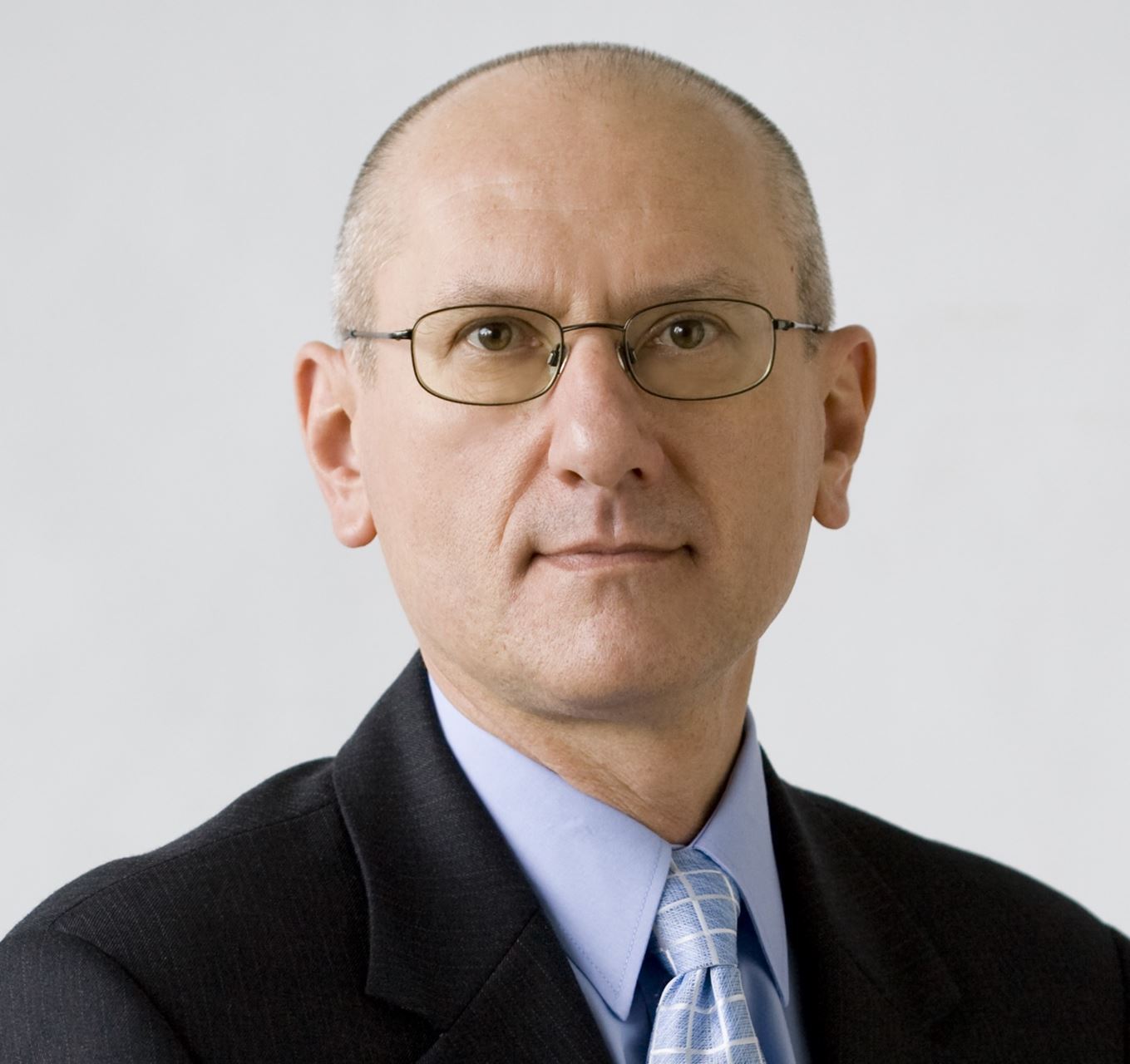
Boris Golja
Where do you work?
I’m a co-owner of Golja Haines & Friend – an independent practice of patent and trade mark attorneys based in Perth, Western Australia.
I have a Bachelor of Science degree from the University of Western Australia, majoring in physics.
What do you do?
Primarily, my role involves applying for and obtaining patent, trade mark and design rights for clients in Australia, New Zealand and other countries.
I also become involved if someone infringes one of my client’s rights or if one of my clients is accused of infringing someone else’s patent, trademark or design rights.
One of the key functions in my role is writing patent specifications. A patent specification is a document that describes the main aspects of the invention that are sought to be patented and is written from both technical and legal standpoints.
The starting point in writing a patent specification is obtaining the relevant information about the invention from the inventor/s. This can involve in-person meetings with the inventor/s, who sometimes provide a physical sample of a protype of the invention, on-site meetings to view inventions such as in the case of large-sized protypes, as well as communication by telephone and written electronic communication.
Another key function of a patent attorney is the assessment of the current state-of-the-art (the “prior art” in patent parlance) in the field of an invention and how an invention differs from the prior art.
I must also formulate submissions to the Patent Office in relation to the inventive merits of the invention over the prior art. This involves distinguishing the invention from the prior art, based on its inventive aspects within the framework of established legal principles – such submissions are almost exclusively in writing.
How do you use your physics training in your current role?
To become registered as a patent attorney you’ll need an appropriate academic qualification (in a field of science or technology that produces inventions that can be patented) so my physics degree was essential.
In addition, you need to gain an accreditation in patent, trademarks and design law and practice and 2-years of appropriate employment experience in patent practice.
As a patent attorney, I’ve dealt with inventions in a broad range of technologies.
Physics training is used here on several levels – firstly, to understand the nature of inventions in the more specialised fields that I’ve encountered, for example, telecommunications, spectrometry and laser technology.
However, it comes into play generally, in identifying and understanding the fundamental physical principles at work in all inventions. More broadly, physics training provides a grounding in analytical skills and the ability to assess critically.
It’s important to have strong analytical skills to identify and prioritise the main aspects and features of an invention. This is essential so as to present the invention in the patent specification in a manner that will maximise the value of the patent to the patent owner.
My career advice
Keep an open mind when you’re considering your career options, particularly if you are at an early stage of career development. You may well be surprised by some of the opportunities that can present themselves.
You can find out more about the patent and trademark attorney profession from these sources:
The Trans-Tasman IP Attorneys Board: https://www.ttipattorney.gov.au
The Institute of Patent and Trade Mark Attorneys of Australia: https://ipta.org.au
“What are we willing to risk to save the planet?”

Dr Ann Thresher
Where do you work?
I’m an environmental ethicist and philosopher of science, working as a post-doctoral fellow at Stanford University.
The big question that drives a lot of my work is, ‘What are we willing to risk to save the planet?’ As the environmental crisis gets more extreme, so too do the interventions we need to perform to solve it. Along with the benefits, these new technologies also tend to come with increased risks, and a lot of complex ethical questions about who gets to decide what risks are worth taking, and who and what we’re willing to risk.
Should we perform geo-engineering to block solar radiation? What are the potential issues surrounding genetically modifying invasive species to wipe them out? What about modifying crops to make them more resistant to weeds? Or artificially migrating species to new locations that are more friendly to them in a post-climate change world?
I work a lot on the ethical and value structures surrounding these emerging environmental technologies and techniques, figuring out how to deploy them in ways that give the greatest benefits while also respecting our ethical obligations to people, communities, animals, and ecosystems.
Because my work is so grounded in the science, I work a lot with researchers, co-authoring papers, sitting in lab meetings, and otherwise collaborating on the ethical topics of emerging sustainability projects.
I also work in the policy space, thinking about how to govern these new technologies, taking scientific possibility and translating it through to just and ethical application.
In addition to my projects at Stanford, I lead a working group of humanities scholars, social scientists, astronomers and engineers based at Harvard who are trying to figure out better siting practices for telescopes.
Physics, and science more broadly, has a history of not considering the historic, environmental, or social factors associated with where experiments are built, often to the detriment of both local communities and the projects. As a member of the Next Generation Event Horizon Telescope collaboration, I work with the siting teams to integrate responsible siting practices into the decision of where to build their future telescopes and how to engage with the local communities and ecosystems in ways that are mutually beneficial for everyone.
What type of physics did you train in?
I did a double degree at Sydney University. One degree was a BSc in physics, with a focus on general relativity, and the other was a BA in philosophy with a focus on metaphysics. I basically wanted to know how the world worked, and those two degrees seemed the best positioned to give me answers. I took several further general relativity classes during my PhD in philosophy.
How did physics get you into your current role?
As a undergraduate student, I loved both my physics and my philosophy classes, so when I was introduced to the philosophy of physics – a field almost entirely populated by escaped physicists who now spend all their time working on the fundamental aspects of physics and its underpinning mathematical structures – I fell in love. It was the perfect combination of my two interests; I knew I didn’t want to work in a physics lab, and being in philosophy gave me much more flexibility about what questions I explored.
In particular, I became interested in the philosophy and physics of time; namely what exactly time is at a fundamental level, and what physics can tell us about the way we, as observers embedded in space-time, perceive and interact with temporal passage.
After finishing my undergraduate degrees, I did an honours year at Sydney in the History and Philosophy of Science on the philosophy of time. This, in turn, led to a PhD at the University of California San Diego in Philosophy, where I worked on how non-compact global space-time structures affected simultaneity relations.
At the same time as I was working on the philosophy of physics, however, I encountered philosophers working on broader questions that also excited me. One of my supervisors, Nancy Cartwright, encouraged me to think about the way science works, and what makes scientific results more or less trustworthy.
Eventually Nancy, myself, and several other philosophers of science, published a book on the topic - The Tangle of Science – which came out earlier this year with Oxford University Press.
My other PhD supervisor, Craig Callender, is a well-known philosopher of time. He’s also, however, deeply passionate about applied ethics, and in particular the ethics of science and technology.
While working with him, I ended up writing a paper on the ethics of using gene-drives to control invasive species, and became deeply interested in the risks and benefits of emerging technologies. As part of that, I got to see what a big difference ethicists could make in the emerging technology space, and how much work needed to be done.
Eventually, several years into my PhD, Craig asked me whether I was sure I wanted to write my thesis in the philosophy of physics, or if I might actually be happier doing environmental work.
I immediately had an identity crisis.
I’d always conceptualised myself as a physicist at heart, just one working in a philosophy department. To give that up, even for something as interesting as environmental ethics work, was a major change and one I spent a long time agonising over. Eventually, however, I realised that what I really wanted was to make a difference, and that environmental ethics was both deeply interesting, and pressingly important.
Craig later admitted to me that the question about changing my dissertation was a throwaway line he didn’t expect me to actually take seriously.
So I became a philosopher of science and an environmental ethicist. In many ways it brought me full-circle back to my childhood. Both of my parents are scientists. My mum used to be an oceanographer, helping monitor global ocean temperature change, and my dad worked on a range of topics surrounding invasive species and ecological change. They were the reason I wanted to be a scientist in the first place, and why I did my physics degree. Now, however, I find myself having deep conversations with both of them about climate change, invasive species control, and our ethical obligations towards the environment.
I love where I’ve ended up, the sustainability space is fast-moving and fascinating, and there’s a lot that philosophy can contribute to conversations about science and policy moving forwards as we try to address the environmental crisis.
I haven’t given up on my physics work altogether – I now get to combine both my passions in my work as physics ethicist, working with researchers around the world on ways to make physics more environmentally friendly, and to figure out better ways to decide where to build telescopes, working with local communities to ensure the benefits of research are felt by everyone.
How do you use your physics training in your current role?
My science background makes a huge difference in my current work. It means I can engage with my science collaborators on a more equal footing, knowing how science works in the lab, and what to expect out of research. It also means they trust me more, and that I can make more-informed suggestions about how to ethically do science.
Was there a particular moment in time, when you realised your physics training has been valuable?
It’s a myriad of little moments. Being able to talk about general relativity with my astronomy collaborators, knowing how to efficiently parse science papers, being able to understand the complexities and nuances of what actually happens in research, rather than the sanitised version that often gets presented to the outside world, all of these, and more, are thanks to my background in physics.
There are a lot of career paths that flow out of a physics degree, and I never would have expected to end up where I am today. The trick, I’ve always found, was being open to opportunity, and willing to take risks on things that excite you.
From Latin to lasers and livestock: Lifetime AIP Fellow, Brian Orr
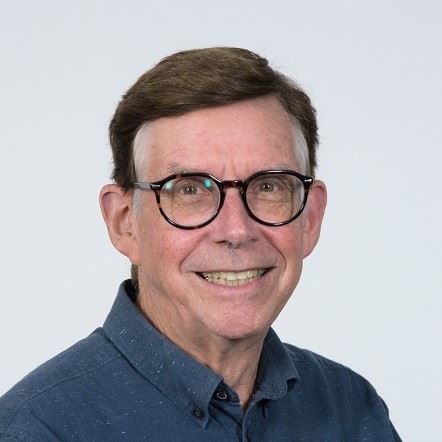
Emeritus Professor Brian Orr, b. 1942
My introduction to physics
In early secondary school, I planned to be a Latin teacher but then a classmate got me interested in electronics and chemistry sets.
I suppose I veered towards chemistry because my father was an electronics engineer and I didn’t want to end up too close to his area! Ironically, I have done a lot of electronics engineering in the course of my laser-based research career.
I took a science degree at the University of Sydney but majored in Chemistry, partly because I held a traineeship with a leading paint company. But I dropped out of distinction-level physics after 3 weeks because I was unimpressed by the teaching style.
After abandoning my aim to be an industrial chemist, I gained a prestigious scholarship at the University of Bristol in the UK that enabled me to take on a PhD in physical/theoretical chemistry.
I have always appreciated the precision and predictive capacities of physics and mathematics, and have applied these to molecular and optical problems.
My first physics job
My first genuine physics job was at the National Research Council of Canada in Ottawa, working in the molecular spectroscopy group headed by Gerhard Herzberg, who later won a Nobel Prize.
In both Bristol and Ottawa, I experienced the joys of working as part of a highly talented ‘international brigade’ with a wide range of skills and interests. That equipped me for my first permanent job late in 1969 as a Lecturer in Physical Chemistry at UNSW, back in my home city of Sydney, at a time when academic jobs were becoming scarce.
Memorable career moments
In 1964, a University Medal in chemistry launched me on my research career. My early research on molecular electro-optic properties allowed me to gain entry to the emerging field of nonlinear optics and to publish some highly cited research papers in that area, and on optically detected physical processes in molecules.
A memorable moment came in 1988, shortly after I became Professor of Chemistry at Macquarie University, when the University’s Centre for Lasers and Applications was awarded ‘Special Research Centre’ status, with Professor of Physics Jim Piper as its Director and myself as his deputy. This provided a significant research focus on laser science and engineering and on spin-off applications.
It has been highly satisfying – even if demanding at times – to be able to combine curiosity- and utility-motivated research with university teaching and administrative decision-making.
After 15 years as Professor of Chemistry at Macquarie University, I formally retired in 2002. At this time, I was fortunate to be made an Emeritus Professor and to establish an ongoing academic home in its Department of Physics. There, I have been able to remain active, interacting with many up-and-coming researchers, and to help the Centre for Lasers and Applications evolve in 2007 into the new MQ Photonics Research Centre.
I am fortunate to remain reasonably research active, with my current focus being on cost-effective laser-based techniques to remotely measure methane emissions from grazing livestock.
My career advice
Maintain a wide range of scientific interests and pursue their most challenging leads.
I am extremely grateful for the stimulating interactions that I have enjoyed with so many scientists, young and old, in physics and beyond.
“Physicists cannot be confined to a silo”
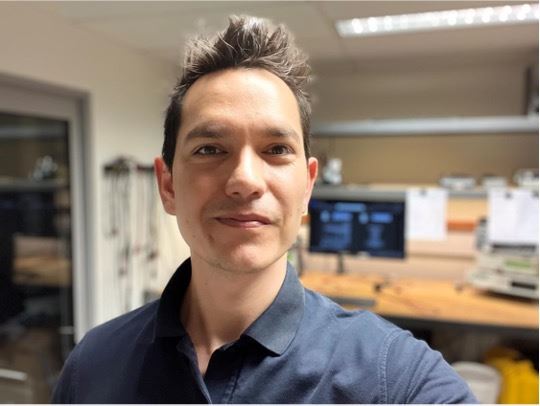
Benjamin Arrow
Where I work: I work at Calibration and Testing Services Pty Ltd, known as CATS, in Perth, WA.
What I do: I am the lead Metrologist and Quality Manager.
Day-to-day, I am responsible for ensuring that all our measurements are traceable to the SI units through an unbroken chain of calibrations of our reference equipment to primary standards. I ensure that all appropriate sources of measurement uncertainty are accounted for, because no measurement is meaningful without an understanding of the uncertainties involved.
I also handle odd and unique measurements and equipment that needs to be tested because I have a knack for breaking things down to fundamentals and seeing what is important and what is not.
My Physics Background:
I completed my bachelor’s degree in physics and nanotechnology, with the majority of my studies done externally because I was a mature age student with a young family. Being the primary income earner meant cramming sessions at night, and much intake of coffee. I would have loved to go on to further studies and advance my physics knowledge by pursuing a doctorate, unfortunately doctorates don’t support young families, so that was not for me.
How physics has helped me get to where I am:
Physics has supported the extension of my current role, although this role was not the reason for me pursuing physics. Originally, the reason for my studies was the amazing people at the SASR (Special Air Service Regiment) in Swanbourne. I worked as an electronics technician and wanted to contribute to the Australian Defence Force by working with the then, Defence Science and Technology Organisation or the Defence Intelligence Organisation. These organisations called specifically for physicists and mathematicians, so I enrolled.
I use my physics training to understand the requirements and factors involved in different types of measurements, breaking down seemingly-complex equipment to its fundamental levels. Physicists are strong mathematicians, and this has supported my ability to understand and apply statistical techniques for incorporating measurement uncertainties.
Physics opens doors like no other area of study, and physicists cannot be confined to a silo. If you have anybody in your life that is considering studying physics, I say encourage them to do it.
Predicting Pandemics
“It turned out that the skills I had acquired in my Masters, such as describing real-world phenomena using equations, analysing data and coding, were applicable to mathematical modelling in other fields,”
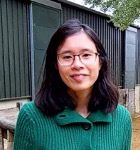
Ada Yan
Where I work: I work as a virologist at Imperial College London.
What I do: I study how bird flu adapts to humans to better predict which bird flu strains might be likely to cause a pandemic.
My physics background:
I completed my Masters in theoretical condensed matter physics, improving phase retrieval algorithms for electron microscopy.
During my Masters, it became apparent that, while I enjoyed using mathematics to understand real-world phenomena, I would prefer other applications such as in biology.
I applied for a few PhD positions in biophysics, before stumbling upon an ad posted in the physics department, for a PhD position in mathematical modelling of infectious disease in the School of Public Health.
I was unaware that this field existed, but after meeting the team and doing some reading, I was hooked.
It turned out that the skills I had acquired in my Masters, such as describing real-world phenomena using equations, analysing data and coding, were applicable to mathematical modelling in other fields.
After my PhD, I took two postdoc positions in mathematical modelling of infectious disease and the immune response. I became increasingly interested in how the experimental data I was analysing was generated.
I realised that if I were to one day lead projects and teams combining mathematics and biology, I would need to understand the world of biology more fully: which questions are at the cutting edge, what new technologies might help us understand them, and how experiments are designed and performed.
With support from my experimental collaborators, I applied for and received a fellowship, where I am performing my own experiments as well as analysing them using mathematical models.
How physics has helped me get to where I am:
In terms of technical skills, physics training gave me the analytic and computational tools required to analyse model equations and relate them to data.
The spread of infectious disease, whether between individuals or within a host, is ultimately a physical process, and the equations describing these processes can be analysed using the same methods as in physics.
But more importantly, physics training began my journey in learning the research process – planning a research project, forming hypotheses, designing and refining experiments (in the lab or in silico), reporting results and forming new research directions.
I have learnt to communicate new ideas with collaborators, form networks and develop resilience.
During the pandemic it became apparent that researchers from all disciplines were required to solve problems in infectious disease. The contribution of physicists was invaluable for understanding processes of aerosolisation, airflow and deposition to unravelling the structures of viral proteins.
“Our customers like to break very expensive stuff and we like to fix it”
“Physicists seem to have an open door into other disciplines due to the first principles approach that we all learn early on.”
Where I work:
Galactic® Co-operative and Galactic® Scientific
What I do:
I work at Galactic® Co-operative and Galactic® Scientific on lasers, robots, spectrometers and other fun things found in labs, control rooms or wherever technology concentrations occur.
After graduating and working in academia and the corporate world, I discovered meaningful work and workplaces were in very short supply. So, I decided to create a place where like-minded people could find meaningful work without being hampered.
Endeavouring to do as much good as possible, with the skillset and drive that I had, ideas became plans, words became actions, Galactic® Scientific and finally, Galactic® Co-operative was born. Mission accomplished!
Galactic® Co-operative is the umbrella organisation for Galactic® Scientific where, as the Lead Physicist, I help our team of physicists and engineers to provide technical expertise and empower lab operators, physicists, chemists and laboratory managers to get the most out of their fleets of scientific instruments and associated devices.
In short, our customers like to break very expensive stuff and we like to fix it.
Our co-operative is also a worker-owned co-operative so the governance and planning of the day-to-day as well as future growth is a significant and rewarding part of what I do and share with our members.
My physics background:
The nanotechnology degree was what initially attracted me to the discipline, which then morphed into a physics/chemistry double major. This led to the field of extraterrestrial mineralogy, cosmology, spectrometry and analytical chemistry.
How physics has helped me get to where I am:
Building and running our business requires attention to evidence-based decision-making and a fearless approach to what may appear at first to be insurmountably complicated technology problems. With the proper mindset, these problems resolve into solvable puzzles custom-made for the enjoyment of the curious mind.
Physics, as the playground of the curious mind and tempered with the requirement of evidence, is the ideal prerequisite to running a technology business.
When confronted with the array of business methodologies, any physicist becomes immediately aware that the majority of businesses operate on opinion. Worse still, many businesses are steered by the opinions of the upper echelons of the hierarchy.
Deciding to operate as a worker-owned co-operative is an obvious improvement. More contributors bringing evidence to a decision will yield a better-quality result.
Consider the jar full of jellybeans. Ask one person, this could be the manager, how many jellybeans are in the jar, and a number will be forthcoming but ask many observers, and the average result will surely be an improvement on the manager's assessment.
What advice do you have for physicists contemplating their career trajectory?
I encourage all Physicists and students to join the AIP and use it to remain connected to your physics community through events and participation on committees or taking office in the AIP. You will be glad you did. The rewards of service are manifold.
Also, I’d like to recommend existing AIP members take a good look at Fellowship. Becoming a Fellow opens previously unknown doors, and more importantly, helps you open doors for others.
Finally, if you have discovered a paucity of meaningful work and workplaces as I did, consider founding your own. Physicists are uniquely talented in what it takes to succeed, particularly when they cooperate.
Find me on LinkedIn
From semiconductors to Google
"The ability to ‘go deep’ on a complex, technical topic is extremely valuable and transferable, and that is a skill that physics training provides."
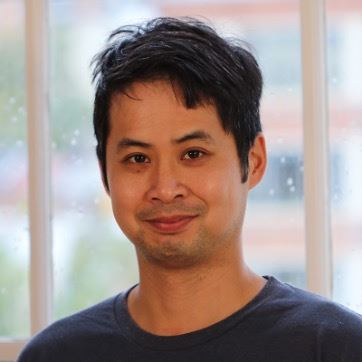
Wilson Pok – Data scientist at Google
Where I work: Google
What I do: As a data scientist, I help businesses run and analyse large-scale experiments.
My physics background: Semiconductor physics. After I got my physics PhD, the field of data science started taking off, and the technical problem-solving skills that I had developed through physics set me up to be a good match for these roles.
How physics has helped me get to where I am: There are core skills that I use, like researching scientific papers on latest methodologies, and framing business problems as technical ones. Additionally, there are more specific skills, like statistics and programming, that I use every day.
When I started meeting other data scientists and found that many of them were also physics PhDs, I realised that this is actually a common career path.

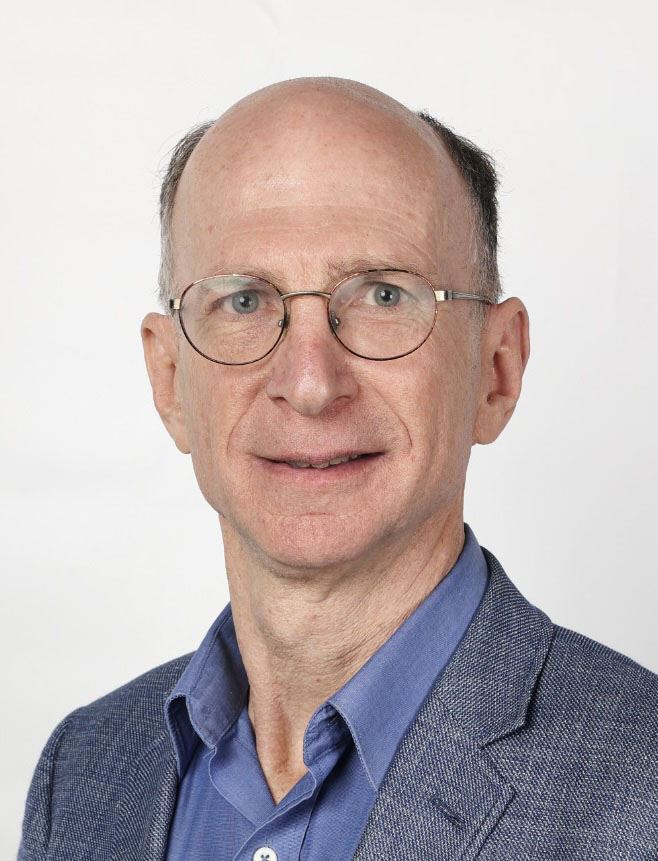 I developed the concept, and designed much of the mechanics. Seven of the machines are still in operation at Rio Tinto Diamonds offices in Belgium. This achievement was made possible with an ex-Rio Tinto colleague who was, and is, a master at electronics and programming – something I was never good at.
I developed the concept, and designed much of the mechanics. Seven of the machines are still in operation at Rio Tinto Diamonds offices in Belgium. This achievement was made possible with an ex-Rio Tinto colleague who was, and is, a master at electronics and programming – something I was never good at.